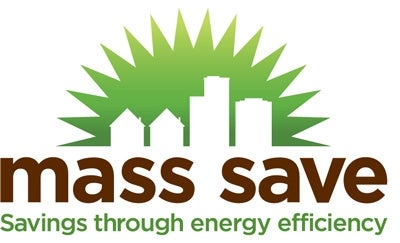As New England braces for winter and the coming seasonal increase in energy prices, state-run energy efficiency programs are offering up the promise of lessening the impact of rate swings at little or no cost to business customers. Far from turning down the heat at night and taking care of drafts, Mass Save is looking to give businesses options for substantial and long-term changes to yield savings for companies and environmental benefits, while lowering energy costs for the state as a whole.
Whether it is gas-fired heating components, manufacturing equipment, or the massive refrigerators used in restaurants, commercial businesses throughout the state draw a massive amount of energy resources in vastly different ways. That is why the energy efficiency programs offered through Mass Save — the same organization that handles residential energy efficiency programs — can be custom-tailored to the needs of different businesses, said Danielle Williamson, a spokesperson for National Grid, which administers Mass Save’s electricity efficiency programs in the Worcester area.
“Our people have definitely worked out custom-made programs that make sense for various businesses,” she said. “The programs have been highly successful and utilized on the residential side of our customers and we are eager for more commercial customers to see what they can do to benefit their business in energy efficiency.”
The odds are if it uses energy there is something that can be done to make it more efficient, she said. The process is kicking off with a free energy use evaluation, with options being laid out from there.
Although quite varied, the major areas that can be addressed at most businesses are lighting, heating and cooling, and manufacturing equipment such as those using pumps and motors, Eversource Spokesperson Mike Durand said. “We have found that among the list of expenses for business, energy costs tend to be near the top of the list,” he said.
Programs
Efficiency steps can cover everything from retrofitting existing facilities to outfitting new constructions, Durand said, explaining that any time a business is planning to replace existing equipment or put new equipment in place would be a good time to reach out to see what kind of benefits there might be through Mass Save. These are not programs for free equipment, but rebates, discounts or financing, which are designed to help businesses install more efficient equipment. The Mass Save programs can often offset the cost of going to the next step in efficiency in whatever piece of equipment is being replaced or installed, Durand said.
Short-term costs often result in long-term savings for businesses of all sizes, Department of Energy Resources Commissioner Judith Judson said.
“For every kilowatt or therm saved it delivers real savings to the bottom line of that business,” she said. “For every dollar invested, there is about a four-dollar return on investment.”
The fact that these programs are funded by ratepayers, through an energy efficiency charge of 5 to 6 percent on each bill, should be extra impetus for any customer to have a free energy evaluation, said Durand and Williamson.
“The program is something customers are paying for, but as energy consumption goes down, (the entire bill) will go down, including payment to the programs,” Durand said.
With strained energy resources in the state, energy efficiency measures are just as much a part of addressing the energy mix as bringing in northern hydro power or increasing the flow of natural gas into the region, Judson said.
Energy efficiency has also grown into a contributing sector of the economy in its own right, Judson said, explaining that according to the state’s 2014 clean energy report, more than 75 percent of the 88,000 clean energy jobs in Massachusetts were related to efficiency.
“It is truly a great way to cost-effectively meet our energy challenges while growing the economy in the state,” she said.

